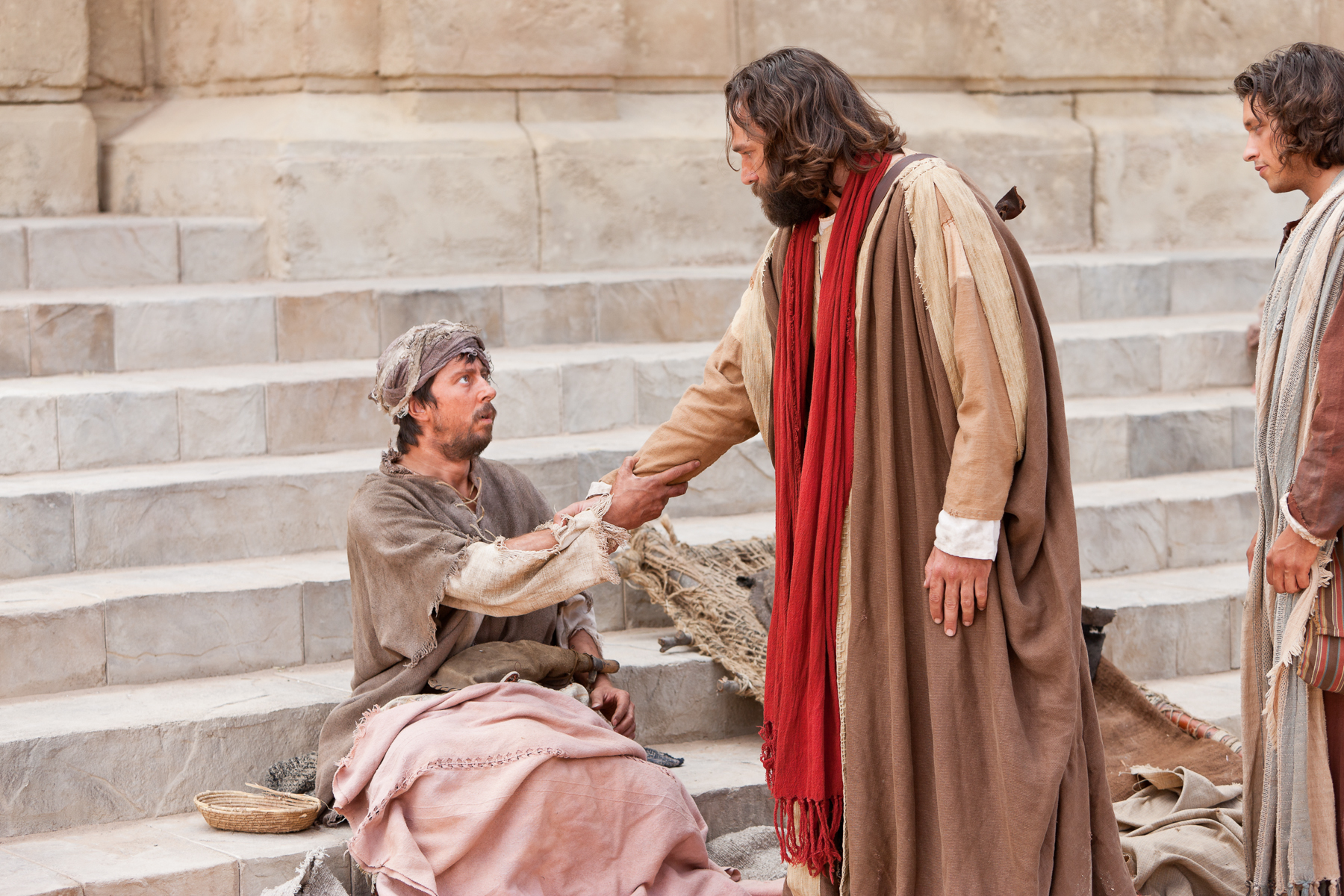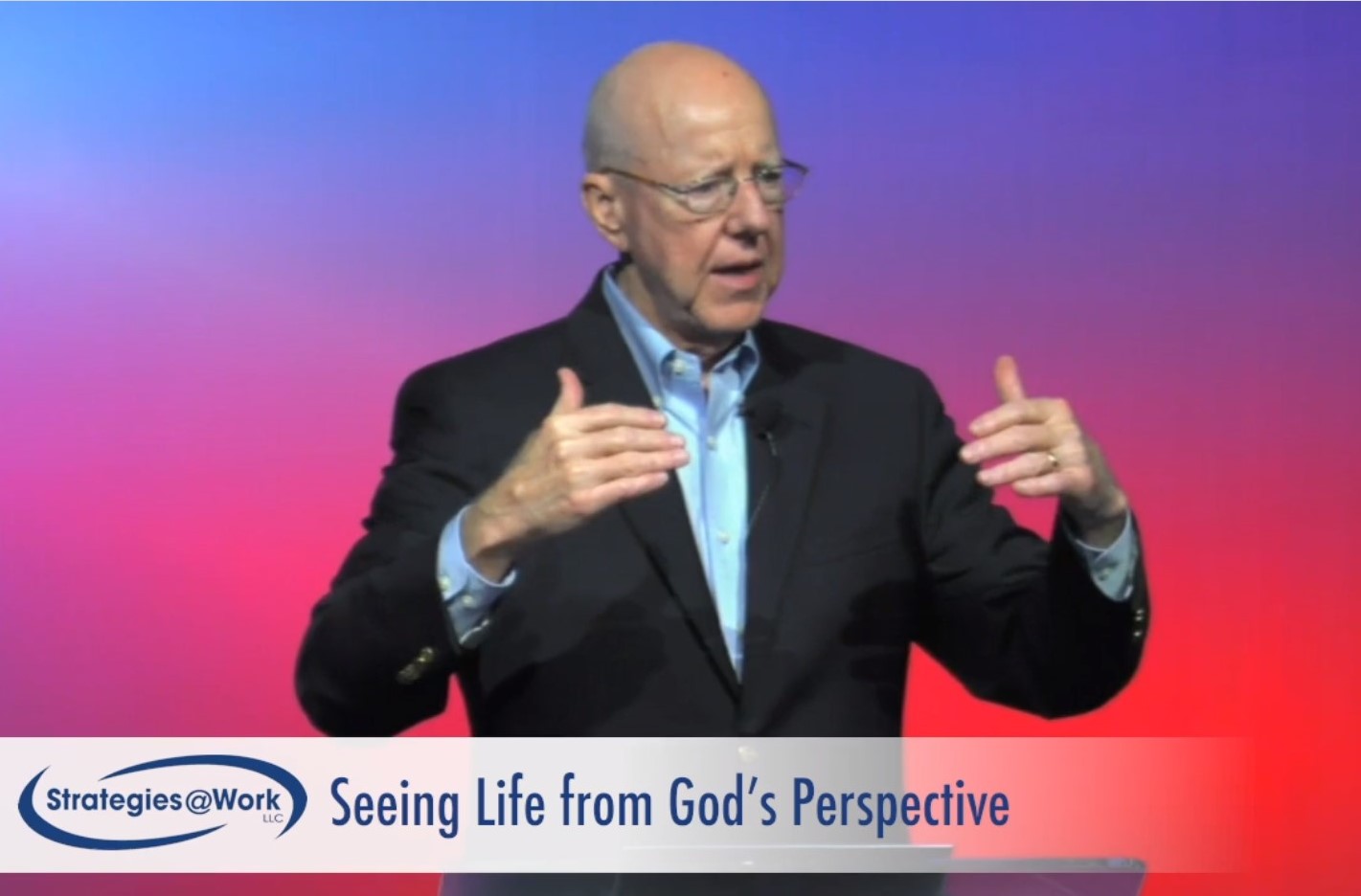 |
||||||
March 1, 2020 |
||||||
Gleanings |
||||||
The Currency of the Church |
||||||
by Gerald R. Chester, Ph.D. |
||||||
| One of my grandsons asked his mother if he could call Granddad (me) during the middle of a workday. My daughter assumed that I was busy and, therefore, unavailable, and she communicated accordingly to my grandson. He responded by saying that it didn’t matter whether I was busy or not, he knew that his granddad would want to talk with him because he always wanted to talk to his grandson. My grandson’s perspective illustrates a powerful spiritual truth. For those who have come to know Jesus, they are adopted into the family of God and, therefore, enjoy the security of his love and acceptance, like my grandson is secure in the love and acceptance of his granddad. And when one is secure in the heavenly Father’s love and acceptance, one lives with confidence, just as my grandson spoke with confidence. What would it be like to live in the security of being adopted into the family of God? What would it be like to work with a profound sense of the love and acceptance of the heavenly Father? In other words, what it would be like to live by faith in the workplace? Undoubtedly, there would be many markers. The seminal indicator would certainly be a desire to obey the will of God. For example, this means that one would choose work based on one’s divine calling and would perform that work with excellence. Also, one would lead others into alignment with the will of God for their lives and manage them accordingly. Success would be defined by the degree of obedience to the will of God. Another indicator of working by faith would be one’s view of money. Money would no longer be the purpose of work. Instead, money would simply be a tool to do the will of God. Viewing money as a tool of alignment with God would transform one’s use of money. The pedestrian view of money today is that money is a tool to do one’s will. For most people, the goal of work is retirement. This is commonly called the American Dream. This means that one should work as hard as one can, make as much money as fast one can, so that one can stop working and do what one really wants to do as soon as one can. This is a very narcissistic and hedonistic view of the purpose and use of money. If one seeks to live aligned with the will of God, achieving the American Dream is not the objective. Rather, the objective is to skillfully and wisely steward God’s resources through divinely ordained work for the purpose of facilitating obedience to God’s will. This means that money is only a temporal tool that has no value beyond this existence. Given that all humans will physically die, barring the return of Jesus, one must think beyond the temporal tool of money to a greater wealth. There is a greater currency than money available to those who seek to obey God’s will. This currency is more powerful than money, as illustrated in the story of the healing of the lame beggar in Acts 3. Unlike money that has only temporal value, this wealth is transcendent wealth that has value both in this existence and beyond physical death. Transcendent wealth is true wealth; money is not true wealth. In Acts 3, the distinction between temporal wealth and true wealth is illustrated in the story of the lame beggar who sought temporal wealth from Peter and John, which they did not have. Instead, they gave him something that temporal wealth could not buy—complete healing from his congenital condition and the truth of Jesus. His response was passionate joy and gratitude to the Lord for the gift that only true wealth could buy. True wealth has far more value than temporal wealth. True wealth is the currency for those who know Jesus. It is the currency of Jesus’ church (the New Testament eκκλησiα). Learning to live in the kingdom of God is learning to conduct business with true wealth. In Acts 3, Peter and John conducted business in the ordinary course of life using the currency of the New Testament eκκλησiα. Some examples of true wealth are:
Though true transcendent wealth is far better than temporal wealth, there is a divine purpose for temporal wealth. Temporal wealth is a tool, as noted above, to be used as an expression of faith and, therefore, to facilitate alignment with God’s will. Scripture provides guidance on how to use temporal wealth to align with God’s will. For example, one should honor the Lord with the firstfruits of one’s labor (Proverbs 3:9). This means that one’s first thought about the use of temporal resources should be the Lord not one’s self. In other words, one should sacrifice personal pleasures and desires to fund God’s will. Another example is charity. Charity was not a virtue of the first-century Roman culture that has largely shaped current Western culture. Rather charity is a virtue that emanates from Christianity as noted in the following Scripture:
Furthermore, giving should be done in humility:
But beyond giving, one should use temporal wealth to store up true wealth:
Whatever one values will control one’s heart—one’s mind, will, and emotions. Treasuring temporal wealth is idolatry. Treasuring true wealth is obedience to God. True wealth is transcendent wealth that has value both now and in the next existence. If you value true wealth, your heart will be right before the Lord. Then you will be secure and live by faith as one who has been adopted into the family of God. Living by faith enables one to live in confidence, that is, confidence in the Lord. A life so lived will measure success in terms of obedience to the will and ways of God. Temporal wealth will simply be a tool to facilitate obedience to God. And true wealth may manifest in supernatural events as the Lord extends his grace to serve his purpose. In a life of faith, temporal wealth will not be the focus of work. Temporal wealth will be understood to be the by-product of working out of obedience to God. And temporal wealth will be used as a tool to facilitate alignment with God in one’s self and others. Building true wealth—the currency of the New Testament church (eκκλησiα)—is working in the kingdom of God. This is living a life of faith. This is living a life of love, security, and acceptance in God. This is a life well lived! |
||||||
| Quick links | ||||||
Teaching: The Currency the New Testament Church |
||||||
| Upcoming Training | ||||||
|
||||||
| Recent Trainings | ||||||
| Social Media | ||||||
| Gleanings | ||||||
| Other | ||||||
|
||||||







.png)